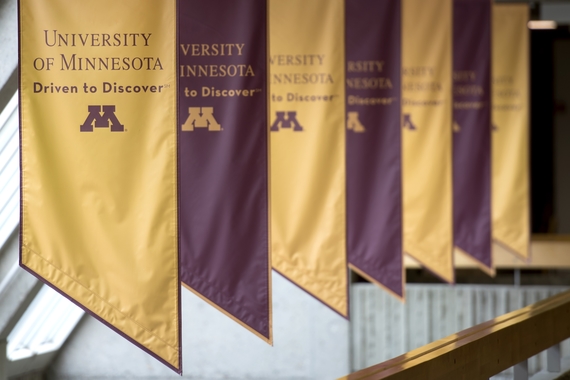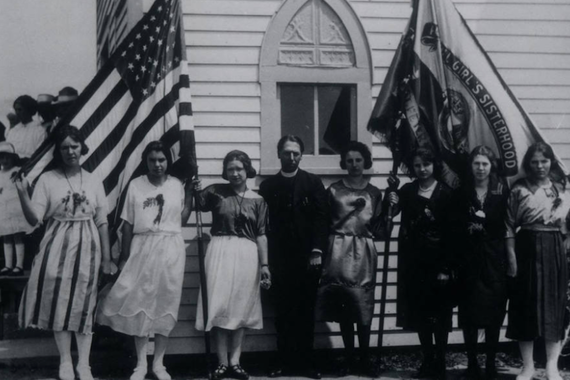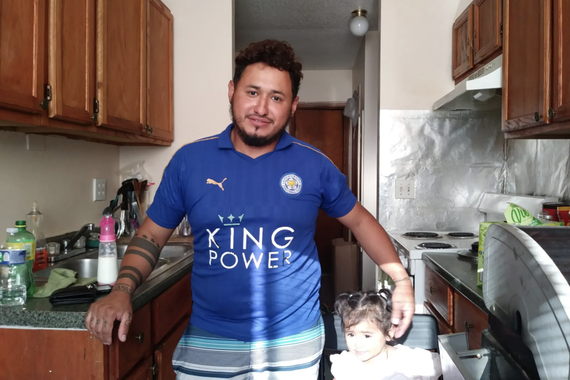Meet Alfreda Daniels
Alfreda Daniels, a community organizer with the Minneapolis Regional Labor Foundation, will be joining us at Afromigrancy event, which will take place on April 18 at the University of Minnesota’s Elmer L. Andersen Library.
Daniels, a Liberia native, arrived in the United States as a refugee in 2006. In 2017, she was appointed to serve on the State Board of Electricity, which regulates the electrical industry in Minnesota.
The Immigration History Research Center (IHRC) recently interviewed Daniels about her work with African communities in the Twin Cities. Here’s our conversation:
IHRC: Writing one’s own short bio can be an exercise in record-creation. Please describe yourself in a way that you want the general public to know who you are and what you do.
Daniels: I live and work in the northwest suburbs of the Twin Cities. I engage community and union members around different issues ranging from employment, immigration and education to transportation. In doing so, I help create a non-transactional relationship between communities of color and the labor movement to build power for change. In early 2015, I organized the Northwest Suburbs Community and Labor Collective whose mission is to build an intentional multi-sector partnership that will take on working family’s issues, develop leaders, and build political power in the northwest suburbs as we expand the labor movement.
I am originally from Liberia in West Africa. I migrated to the United States in 2006, after living in Ghana for six years as a refugee. I attended St. Cloud State University. I studied Political Science, International Relations, and Human Relations. In 2017, I was appointed by Governor Mark Dayton to sit on the MN State Board of Electricity, making me the first and only woman of color to serve on the board.
IHRC: L.P. Hartley, a British novelist, once said, “The past is a foreign country.” Do you agree with this pronouncement? When looking back to account for details of what happened during your or family’s journeys to this country, does your or family history of migration appear foreign to you?
Daniels: This statement may be true for many and in many instances, but not for me. My journey to the United States, the whole experience of it, is a big part of who I am today and why I do what I do. It is me.
IHRC: What specific conditions or circumstances in the present cause you to recall memories of your homeland in unexpected ways?
Daniels: The Liberian community in Minnesota. Just being around the Liberian community here and seeing the display of our culture, music, and sharing our experiences with each other make me recall the good memories of my childhood in Liberia that I have held on to for decades.
IHRC: If you could take one book -- or one enterprise story -- with you to 2076, the year of the United States Tricentennial, the dawn of the fourth century of the founding of the United States, what would be your choice? The book, of course, does not have to be written in English.
Daniels: Just Mercy: A story of Justice and Redemption by Bryan Stevenson.
IHRC: Let’s say you have been given an opportunity to contribute to a time capsule project to offer future historians raw materials from the past (also known as primary sources) so that they can engage in the craft of historical research and writing about Afromigrancy. The container of artifacts and records will remain sealed and stored safely for 100 years (until 2119) in the basement of the Elmer Andersen Library under the stewardship of the Immigration History Research Center Archives. Choose five items you would donate from your personal, family, and community collections to this project.
I would donate:
- Photos of myself and my family in Liberia before the war
- A photo of me in the Buduburam refugee camp in Ghana
- A photo of me at St. Cloud State University
- A photo of myself and my family in Liberia after we reunited after 14 years
- A news article about my teaching of pan-Africanism in Liberia


